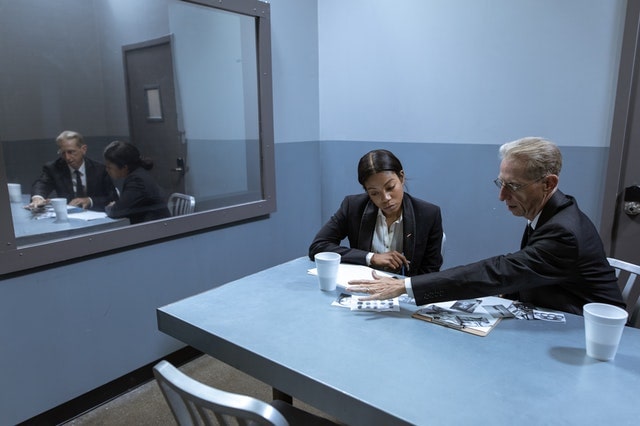How a Lawyer Can Aid With Your Habeas Corpus Application
How a Lawyer Can Aid With Your Habeas Corpus Application
Blog Article
Understanding the Role of a Post-Conviction Lawyer in Looking For Justice After a Criminal Sentence
In the facility landscape of post-conviction lawful procedures, the function of a post-conviction attorney is critical in navigating the path to justice after a criminal conviction. Beyond the boundaries of a test, these lawyers take part in a complex technique focused on discovering new proof, difficult legal errors, and advocating for their customers' rights. The ins and outs of post-conviction job need a blend of lawful acumen, investigatory abilities, and calculated assuming to unwind the intricacies of an instance and seek avenues that might have been overlooked or underexplored. As the quest of justice prolongs past the confines of preliminary proceedings, the role of a post-conviction lawyer emerges as a beacon of wish for those looking for to correct injustices and reclaim their civil liberties within the legal system.
Post-Conviction Lawyer's Investigative Work
Post-conviction legal representatives participate in thorough investigatory job to uncover new evidence, procedural errors, or misconduct that can potentially result in overturning a sentence. This investigatory phase is essential in the post-conviction procedure as it intends to determine any type of ignored details or legal errors that may have influenced the end result of the first test. Post-conviction lawyers explore case documents, witness statements, and legal documentation with a fine-tooth comb, looking for any kind of inconsistencies or irregularities that could be premises for appeal.
Through detailed examination, post-conviction legal representatives aim to shed light on prospective injustices that might have taken place throughout the initial test. By scrutinizing every aspect of the legal procedures, post-conviction attorneys work tirelessly to discover any kind of variables that might have influenced the verdict.
Crafting Appeals and Petitions
In the pursuit of justice after a conviction, knowledgeable legal representatives meticulously craft appeals and requests to present compelling arguments for the reconsideration of legal decisions. Crafting appeals and petitions calls for a deep understanding of the lawful system, attention to detail, and strategic thinking. Post-conviction attorneys examine test records, determine prospective mistakes or offenses of rights, and establish lawful disagreements to challenge the conviction or sentence.
When crafting an appeal, lawyers focus on highlighting lawful mistakes that might have impacted the outcome of the case. They research instance regulation, laws, and legal precedents to support their arguments. Applications, on the various other hand, might include presenting brand-new proof that was not offered during the test or showing adjustments in the regulation that necessitate a testimonial of the sentence.
In addition, post-conviction attorneys need to follow strict procedural rules and deadlines when submitting charms and requests. They must offer their disagreements clearly and persuasively to persuade the court to provide relief to their customers. Via thorough crafting of appeals and applications, post-conviction legal representatives strive to secure justice for individuals who have been wrongfully convicted or unfairly punished.

Pursuing Post-Conviction Alleviation
Looking for alleviation after a conviction needs a strategic and attentive technique by knowledgeable attorneys. Post-conviction relief incorporates a series of lawful devices made to test the legitimacy of a sentence or sentence (oklahoma federal habeas corpus lawyers). These methods include filing movements for a new test, seeking charms, seeking writs of habeas corpus, and presenting freshly found evidence. Post-conviction lawyers play an essential role in browsing these complicated procedures, guaranteeing that all lawful alternatives are checked out to rectify oppressions that might have occurred throughout the trial or sentencing phase.
One common kind of post-conviction relief is submitting an application for post-conviction relief, typically based upon claims of inadequate support of counsel, prosecutorial misconduct, newly uncovered proof, or constitutional violations. These applications require a thorough evaluation of the trial document, legal study, and convincing campaigning for to persuade the court to give alleviation. Experienced post-conviction attorneys possess the skills and understanding needed to determine practical lawful claims, perform investigations, and present engaging debates to protect relief for their customers. By diligently seeking post-conviction relief, these attorneys aim to correct miscarriages of justice and promote the concepts of justness and due procedure in the criminal justice system (Attorney).
Using Forensic Proof
When testing a conviction or sentence, the critical utilization of forensic evidence can be a powerful tool in post-conviction lawful procedures. Forensic proof incorporates a variety of scientific methods utilized to check out crimes and establish facts in court. Post-conviction attorneys can take advantage of forensic evidence to challenge the legitimacy of sentences by offering brand-new scientific searchings for that were not readily available throughout the initial test.

Participating In Sentence Adjustments
Post-conviction attorneys may check out the possibility of sentence modifications as a legal avenue to resolve out of proportion or unjustified sentences passed on in criminal situations. Sentence adjustments involve seeking adjustments to the regards to an accused's sentence after a conviction has taken place. These alterations can consist of minimizing the length of a sentence, altering the kind of penalty enforced, or checking out alternative sentencing alternatives.
Post-conviction legal representatives can go after sentence adjustments through numerous lawful systems, such as filing activities for sentence decrease, appealing for compassionate launch, or discussing plea deals for lowered sentences. They need to thoroughly evaluate the conditions of the instance, evaluate the legal premises for seeking an alteration, and existing compelling debates to the court supporting the need for a modified sentence.
Engaging in sentence modifications calls for a detailed understanding of criminal legislation, sentencing standards, and the specific treatments associated with looking for post-conviction relief. Post-conviction lawyers play a critical function in supporting for fair and simply outcomes by tough sentences that are unduly severe or do not straighten with the principles of justice.
Conclusion
In final thought, the duty of a post-conviction attorney is crucial in seeking justice after a criminal sentence. Through investigatory work, crafting allures and requests, seeking post-conviction find relief, making use of forensic evidence, and participating in sentence adjustments, these attorneys play a crucial role in promoting for their customers and ensuring that their legal rights are promoted within the criminal justice system. Their dedication and knowledge are crucial in navigating the complexities of post-conviction process and achieving a fair result for people facing criminal convictions.
Report this page